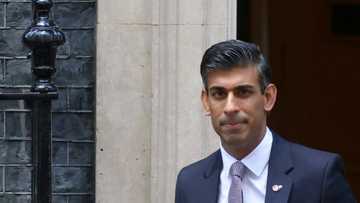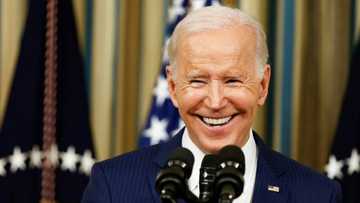UK cops flak over carbon-neutral pledges
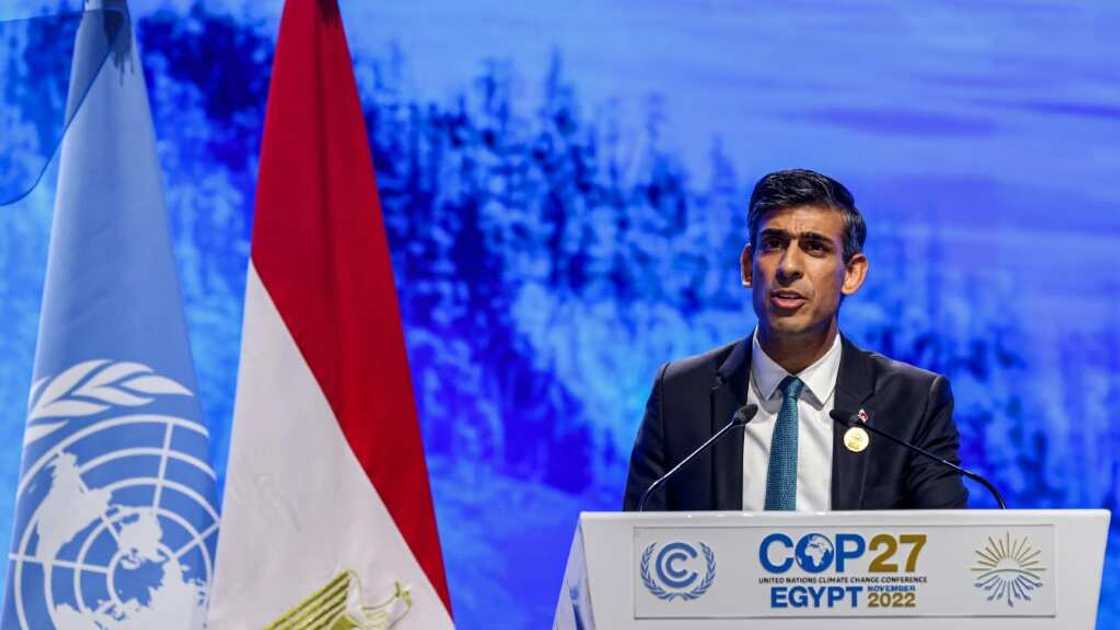
Source: AFP
PAY ATTENTION: Click “See First” under the “Following” tab to see Legit.ng News on your Facebook News Feed!
As world leaders and environmental experts meet at the COP27 climate change talks in Egypt, last year's host Britain is under scrutiny about its commitment to tackling global warming.
London has ambitious long-standing targets to help try to stop the increase in temperatures and has enshrined in law its 2050 pledge for carbon neutrality.
It has vowed under the Paris agreement to cut carbon emissions by 68 percent by 2030, compared with 1990 levels.
Nevertheless, ministers have come under fire from environmental pressure groups and the independent Climate Change Committee (CCC), a UK body which advises the government.
'Way off track'
Green lobby groups gave the government, headed by new Prime Minister Rishi Sunak, a mixed reception and urged a raft of policy changes.
PAY ATTENTION: Join Legit.ng Telegram channel! Never miss important updates!
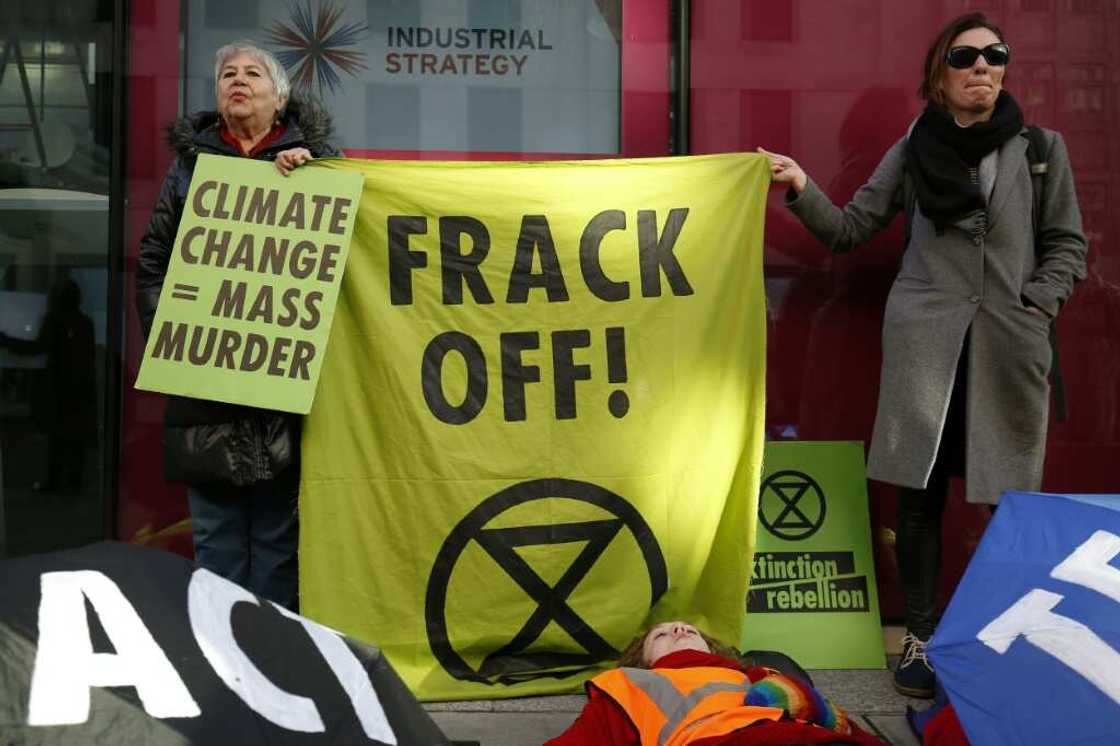
Source: AFP
"The UK is currently way off track for meeting its legally binding climate targets," said Mike Childs, director of policy at Friends of the Earth England.
"Sunak made a good start to his tenure as prime minister last month by reintroducing the fracking ban.
"But there are many important decisions Mr Sunak and his government have to make to show real climate leadership."
Sunak, who took office just three weeks ago, swiftly restored a fracking ban that was controversially lifted by his short-lived predecessor Liz Truss.
At the same time, Britain has sought to ramp up renewable energy and curb coal.
"We are ahead of many nations on cutting our CO2," Doug Parr, chief scientist at Greenpeace UK, told AFP.
"However, much of this reduction is attributable to the decline of coal and the increase in renewables."
The CCC, in its most recent report, declared: "Tangible progress is lagging the policy ambition."
It cautioned that "important policy gaps remain", including the need to reduce demand for fossil fuels.
And the advisory body noted that CO2 emissions in Britain had in fact increased by four percent in 2021 from the previous year.
Coal mine
In a faltering start to his premiership, Sunak first said he would not attend COP27 due to pressing domestic commitments.
He was then bounced into a U-turn after former prime minister Boris Johnson, whom he helped to oust, said he was going.
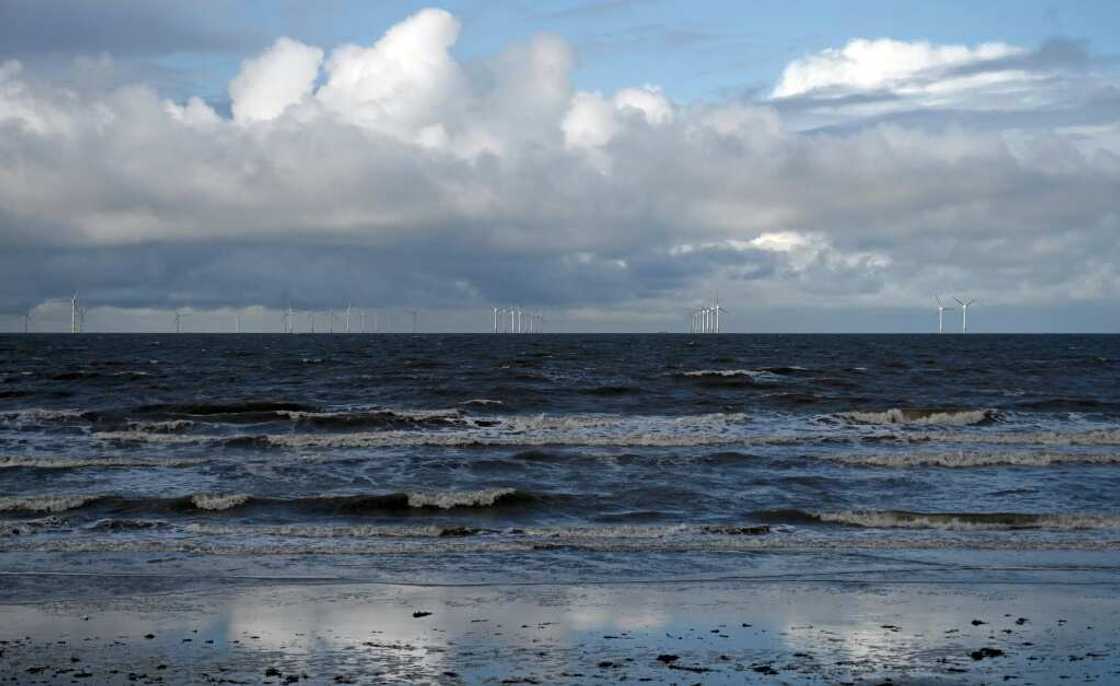
Source: AFP
Critics contend Sunak did little to tackle the climate emergency in his previous role as finance minister in Johnson's administration, which preceded that of Truss.
Green campaigners want Sunak to scrap proposals for Britain's first new deep coal mine in decades.
The controversial project, in Cumbria, northwestern England, has long faced outcry from environmental campaigners.
And it is in sharp contrast to Britain's commitment to scrap dirty coal-powered electricity generation by October 2024.
"Friends of the Earth and others are urging the government to make coal history by refusing planning permission for the mine," said Childs.
He added they were also strongly opposed to more oil and gas drilling in the North Sea, which Johnson and Truss had authorised in the teeth of green opposition, particularly from direct action protest groups such as Just Stop Oil.
Campaigners also want Sunak to allow more onshore wind power and increase energy insulation support for homes across Britain.
And they have urged the Treasury to adapt tax policies to incentivise companies and households to emit less damaging carbon dioxide, particularly by introducing an expanded windfall tax on the profits of energy producers.
Yet campaigners remain unconvinced of the new PM's approach to climate change.

Source: AFP
Green spending was slashed on most energy efficiency projects before the Ukraine conflict and the explosion of domestic fuel prices, they argue.
The CCC wants the government to align its net-zero goal with curbing the cost of living, particularly via increased efficiency measures such as better home insulation, to soften the blow of rising bills.
"So far, Rishi Sunak's attitude to climate action has been lacklustre," Parr concluded.
"As chancellor, Sunak failed to even mention climate change in major economic statements or conference speeches.
"And as prime minister, he only appeared at COP27 after being pushed into attending."
Source: AFP

